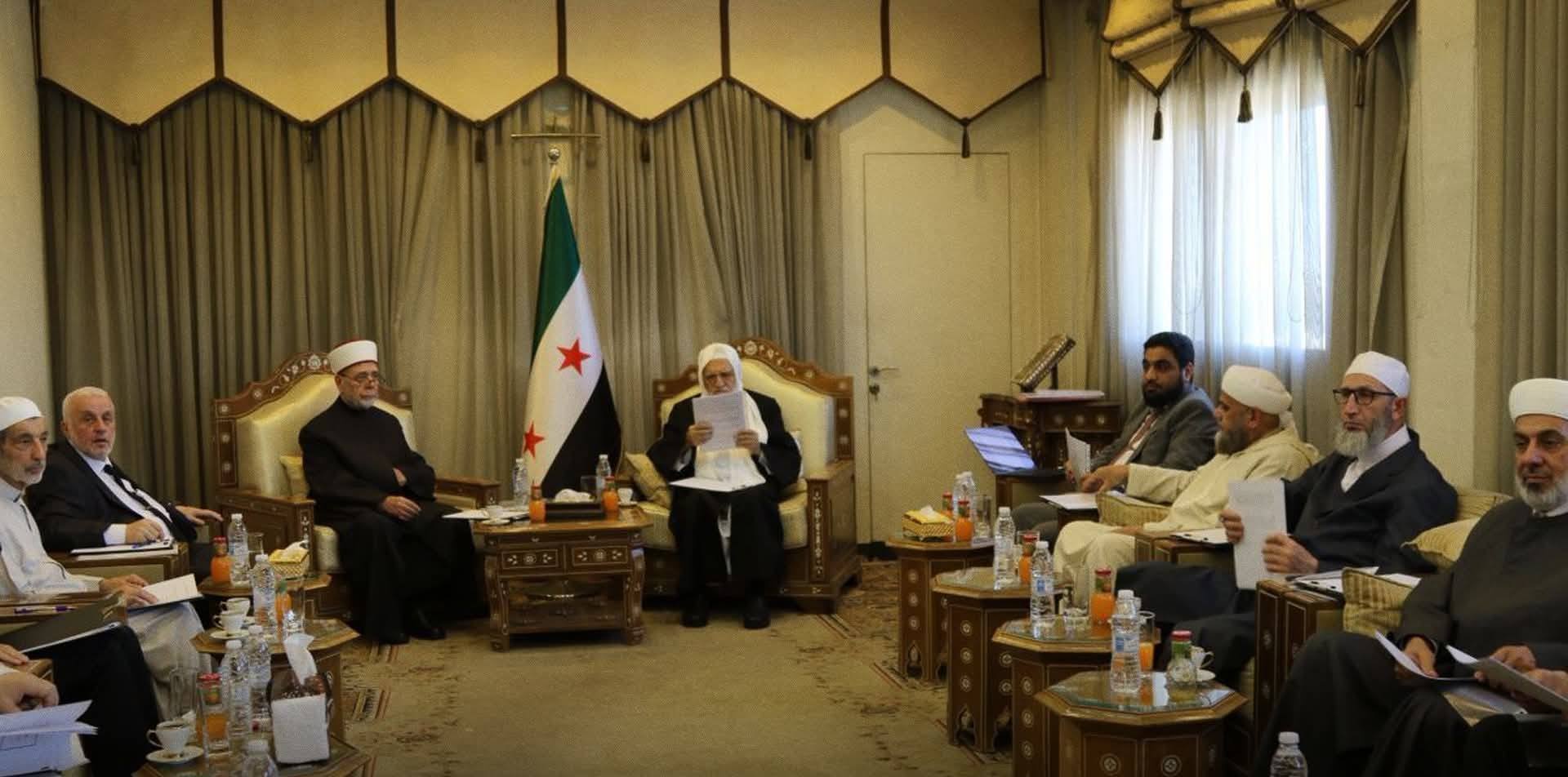The Supreme Fatwa Council in Syria announced on Friday a formal religious ruling (fatwa) prohibiting acts of revenge and retribution carried out outside the framework of legal institutions. Emphasizing that justice must be pursued exclusively through the judiciary, the council warned against individual retaliation and populist incitement.
In an official statement, the council explained that the fatwa was issued in response to numerous inquiries it had received regarding how to deal with repeated violations and assaults. It affirmed that attacks on life, dignity, and property constitute some of the gravest forms of injustice, and that Islam guarantees the right of the wronged party to seek justice—but only through lawful and legitimate means.
The council further stressed that bypassing the rule of law leads to sedition, undermines the state’s authority, and threatens social stability. “Vengeance outside the law sows chaos, spreads division and hostility, and destroys the foundations of justice and civil peace,” the statement read.
The council also directed a strong message to public officials and policymakers, urging them to take responsibility for holding criminals accountable and restoring rights to victims. This, it noted, requires enacting fair laws, expediting judicial procedures, and removing judges who had previously contributed to injustice under the former regime.
The announcement came amid a shifting political context. On May 24, Syria’s transitional president Ahmad al-Sharaa met with U.S. envoy and ambassador to Turkey, Thomas (Tom) Barrack, in Ankara. Five days later, Barrack was received by Sharaa in Damascus, alongside Syria’s Minister of Defense Marhaf Abu Qusra, Foreign Minister Asaad al-Shibani, and General Intelligence Chief Hussein Salameh.
Following that meeting, Barrack stated that President Donald Trump intends to remove Syria from the U.S. list of State Sponsors of Terrorism. He underscored Trump’s view that the Syrian government should be given an opportunity to govern without foreign interference, adding that the new U.S. policy would not mirror decades of past approaches, which he described as ineffective.
Reacting to the fatwa on Friday, Barrack welcomed the council’s decision, calling it “a great first step by the new Syrian government on the path toward a new Syria.” His remarks, posted on X, framed the fatwa as a key indicator of institutional reform and the restoration of lawful order in post-conflict Syria.
This article was translated and edited by The Syrian Observer. The Syrian Observer has not verified the content of this story. Responsibility for the information and views set out in this article lies entirely with the author.


